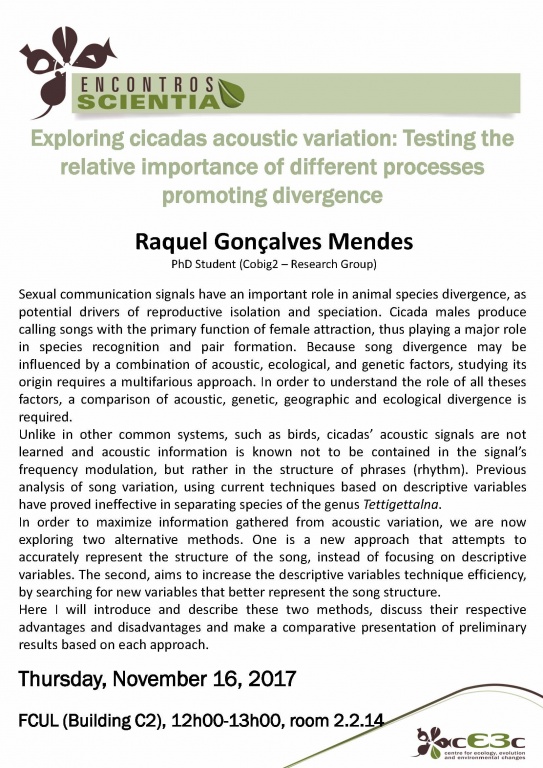Exploring cicadas acoustic variation: Testing the relative importance of different processes promoting divergence
Raquel Gonçalves Mendes
PhD Student (Cobig2 – Research Group)
Sexual communication signals have an important role in animal species divergence, as potential drivers of reproductive isolation and speciation. Cicada males produce calling songs with the primary function of female attraction, thus playing a major role in species recognition and pair formation. Because song divergence may be influenced by a combination of acoustic, ecological, and genetic factors, studying its origin requires a multifarious approach. In order to understand the role of all theses factors, a comparison of acoustic, genetic, geographic and ecological divergence is required.
Unlike in other common systems, such as birds, cicadas’ acoustic signals are not learned and acoustic information is known not to be contained in the signal’s frequency modulation, but rather in the structure of phrases (rhythm). Previous analysis of song variation, using current techniques based on descriptive variables have proved ineffective in separating species of the genus Tettigettalna.
In order to maximize information gathered from acoustic variation, we are now exploring two alternative methods. One is a new approach that attempts to accurately represent the structure of the song, instead of focusing on descriptive variables. The second, aims to increase the descriptive variables technique efficiency, by searching for new variables that better represent the song structure.
Here I will introduce and describe these two methods, discuss their respective advantages and disadvantages and make a comparative presentation of preliminary results based on each approach.
Thursday, November 16, 2017
FCUL (Building C2), 12h00-13h00, room 2.2.14

